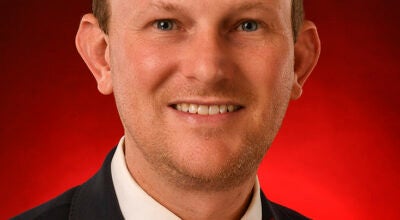The Constitution and Ted Cruz
Published 11:29 pm Tuesday, January 12, 2016
The question of Ted Cruz’s eligibility to be president has been simmering on the back burner for years, but this past week the benign chatter erupted into front-page headlines thanks to GOP frontrunner Donald Trump.
Texas’s firebrand — though perhaps ‘fire starter’ would be a better term — junior U.S. senator has not convincingly presented his side of the story. Cruz claims that he is a natural born citizen as the Constitution mandates for any president. Some legal scholars agree with his take on federal law.
Others do not.
For those of us who are not lawyers, deciding which side has the facts is like a game show contestant figuring out if the $1,000,000 prize sits behind Door A or Door B. May a plain reading of the second article in the Constitution’s first section shed some light?
“No Person except a natural born Citizen, or a Citizen of the United States, at the time of the Adoption of this Constitution, shall be eligible to the Office of President; neither shall any Person be eligible to that Office who shall not have attained to the Age of thirty-five Years, and been fourteen Years a Resident within the United States,” it declares.
Cruz is well over 35, and as far as the public knows, has continuously resided in our country for more than 14 years. So far so good.
The Naturalization Act of 1790 stated “children of citizens of the United States, that may be born beyond sea, or out of the limits of the United States, shall be considered as natural born citizens: Provided, That the right of citizenship shall not descend to persons whose fathers have never been resident in the United States.”
This was voided by the Naturalization Act of 1795, which rescinded natural born status for those born outside American jurisdiction, proclaiming “the children of citizens of the United States, born out of the limits and jurisdiction of the United States, shall be considered as citizens of the United States.”
Making the situation more complicated is current State Department policy, which holds that the 1795 “statute is no longer operative….and its formula is not included in modern nationality statutes. In any event, the fact that someone is a natural born citizen pursuant to a statute does not necessarily imply that he or she is such a citizen for Constitutional purposes.”
So, what exactly is going on here? Right now, it seems like a coin toss.
What we know for certain is that Cruz entered this world in Calgary, capital of the Canadian province Alberta, during December 1970. His Cuban exile father, who only became a U.S. citizen in 2005, admitted to receiving Canadian citizenship, and Ted was conferred this at birth. The Senator’s Delaware-born mother allegedly never followed suit, but nonetheless was found on an Albertan electoral roster.
As might be presumed, only Canadian citizens are allowed to vote in Canadian elections.
If Ted’s mother became Canadian, this would have required her to surrender American citizenship. Canada did not allow dual citizens until the late 1970s, after the Cruz family relocated to Texas.
Prevailing legal opinions maintain that a natural born citizen is one who was birthed in America or to U.S. parents — note the plural — abroad. How can the Canadian son of an American, assuming in her favor, wife and this woman’s Cuban husband be deemed natural born?
Alan Grayson, arguably Cruz’s opposite number among U.S. House Democrats, intends to file a lawsuit should Ted seize the Republican nomination. Does anybody believe that other prominent Dems would not offer to form a class action?
This election season would become the trial of the century.
Republicans ought to be thankful that Trump mentioned Cruz’s eligibility early on. If not for the Donald, Democratic forces would have surely piled on down the road. With such sketchiness — kindly put — in his background, Ted should never have run for president. His candidacy brings unneeded, and totally avoidable, problems to the GOP field.
Now is the time for Cruz to gracefully bow out of the race. Fat chance he will.
Joseph Cotto is a historical and social journalist, and writes about politics, economics and social issues.


